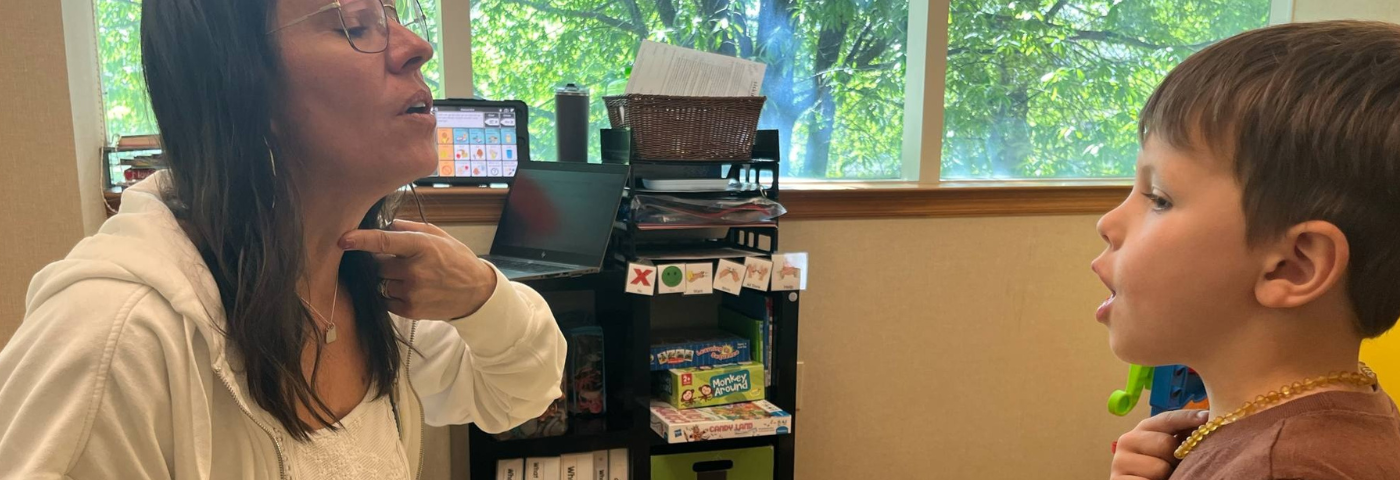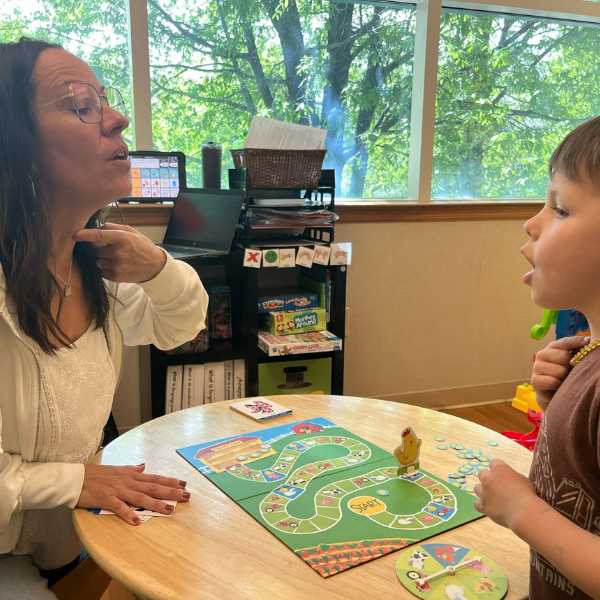When the child comes for their initial appointment, that is going to be an evaluation and typically those appointments last between 90 minutes – 2 hours, depending on the child. A therapist will bring the family back, administer a clinical interview (asking the parents’ concerns, relevant medical history, how long the issues have been going on, etc.) then the therapists will do some clinical observation of the child by seeing how they are communicating, how they’re interacting and playing, etc. Then we will administer some form of a standardized evaluation of the child, so we can compare their communications skills to other children their age. This will vary depending on the child, so it could be a play-based assessment where the child is interacting with toys or it may be a more structured assessment where we’re having them look at pictures, answer questions, or follow directions.



